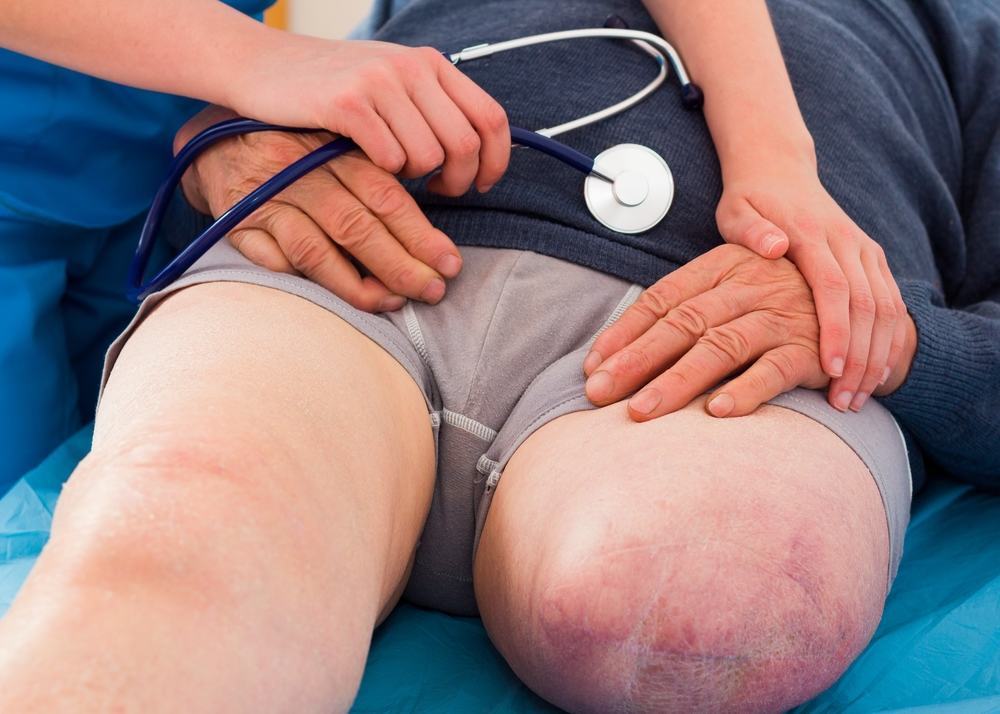Contents:
- Medical Video: Things Not To Say To Amputees
- 1. Who is at risk of having to undergo amputation?
- 2. When will the doctor decide for amputation?
- 3. What complications can occur after amputation?
- 4. How is the amputation done?
- 5. Will amputation correct my health problems?
Medical Video: Things Not To Say To Amputees
There are more than one million cases of amputation, or loss of limbs, annually throughout the world. This indicates that one person loses their limbs every 30 seconds. Amputation is the loss of all or part of the hand or foot. Some common causes of loss of limbs through amputation include:
- Uncontrolled health conditions, such as diabetes and atherosclerosis, which cause severe problems in blood circulation.
- Serious trauma or injury to limbs caused by traffic accidents or military battles.
- Cancer is found in members of the body and poses a significant health threat.
- Birth defects in the limbs or pain that never goes away.
1. Who is at risk of having to undergo amputation?
You are more at risk if you have problems with blood circulation. The most common health conditions that cause this are diabetes. This is because diabetes can cause nerve damage and bad wound healing. When the blood sugar level is high, your blood becomes thicker, causing poor circulation to the hands and feet. Early detection and better control of sugar can help avoid amputation.
Atherosclerosis, a disease that causes hardening of the arteries, can also cause poor circulation. This is due to high levels of fat in the blood. Poor circulation prevents the sending of important nutrients to your limbs, which damage the functioning of the limbs. This can also interfere with the healing process when your limbs are infected.
2. When will the doctor decide for amputation?
Your doctor may suggest amputation of the limbs when there is no blood supply, or when the tissue is permanently damaged. Blood supply is very important for tissues to stay healthy and for healing. Surgeons generally cut above the area that is sick or injured so that part of the healthy tissue can still protect the bone.
Sometimes the location of the amputation depends on where the artificial limb, or prosthesis, will be located. A surgeon who performs an amputation will determine the extent to which amputation is needed. A minor amputation can be done if the tissue remains healthy and has a good blood supply. Poor blood supply or severely damaged tissue in the limbs may require large amputations involving most, or all limbs.
3. What complications can occur after amputation?
An important complication, related to amputation or loss of limbs, is the risk of death.
Other complications include:
- Infection
- Angina (chest pain)
- Heart attack
- Stroke
- Mental pressure
- Wound infection
- Deep vein thrombosis (blood clots)
Complications can also include a condition known as phantom pain. This happens when you still experience sensations such as feeling an amputated limb, or pain in an amputated limb. The intensity of phantom pain varies among people. But, in many cases, this condition tends to disappear from time to time.
4. How is the amputation done?
There are various types of amputations, depending on the specific limbs that need to be amputated and how many of the limbs can be saved.
Amputation of the lower limbs involves removing the part of the foot, or toe. This is the most common type of amputation. It is common in older patients with peripheral arterial disease (PAD) or diabetes.
Amputation of the upper limb includes removal of the arm, hand, or finger. It is rare and tends to be done more often in young people, as a result of serious injury.
Both types of amputations are performed using general anesthesia (where you fall asleep) or epidural anesthesia (where only certain parts of your body are numb using spinal injections), so that you will not feel pain during surgery.
5. Will amputation correct my health problems?
Your prospect of amputation depends on:
- Your age. The younger you are, the easier you can be to adapt to change.
- How many of the limbs have been amputated.
- How well you deal with the emotional and psychological effects of amputation.
- Other basic conditions that can complicate amputation.
You may feel emotional stress after losing your body members. Many people say losing a limb feels like losing a loved one. To recover from the emotional and psychological effects will take time. The best way is to find support from people who have lost limbs. However, with long-term support and rehabilitation, many people especially those who are still young are able to return to work, exercise and do other activities.
READ ALSO:
- Wounds, Must Be Closed or Left Open?
- 10 Ways to Avoid Diabetes Complications
- Diabetes Complications in Your Feet












